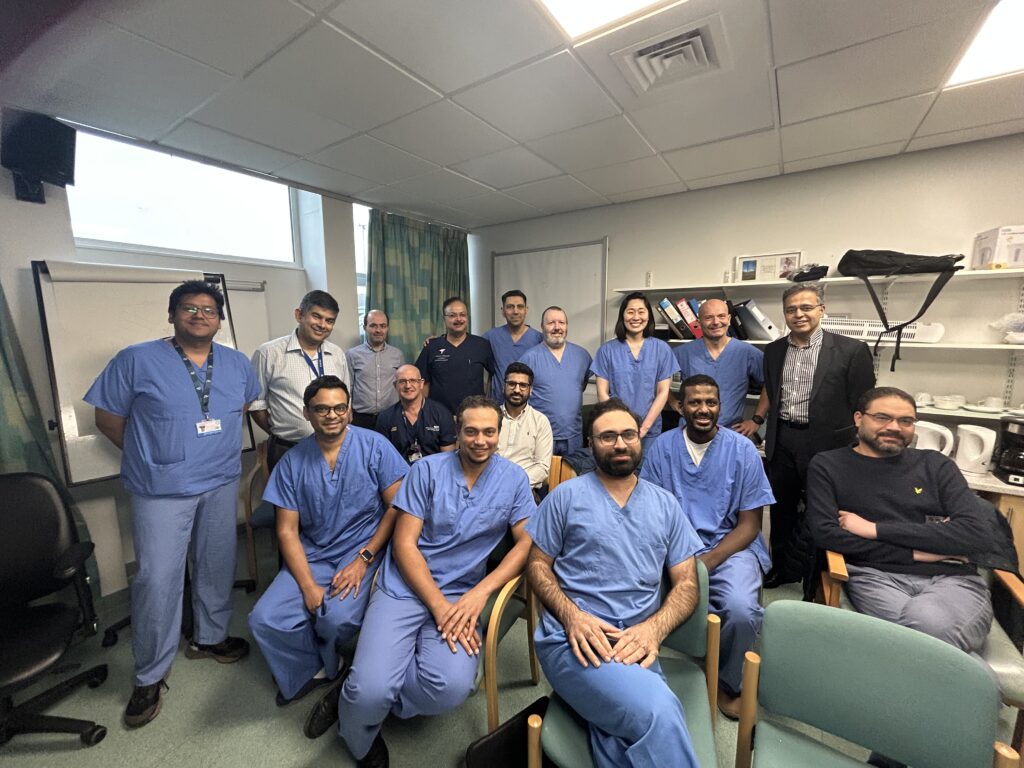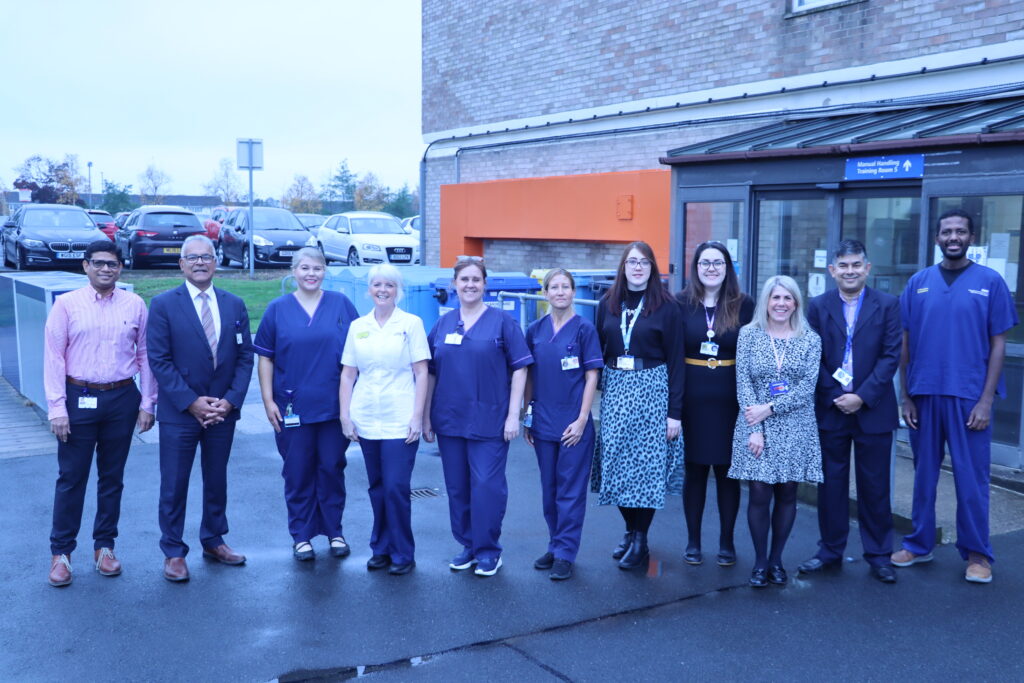
A passion for patient care, combined with a commitment to sharing knowledge and learning, has led to a local hospital service being recognised nationally in a specialist field.
Hepato-pancreatobiliary (HPB) medicine involves the management of benign and malignant diseases involving the liver, gallbladder, pancreas and bile duct.
Despite the high prevalence of hepatobiliary conditions, access to specialist care in this area remains patchy across the UK. Specialists in HPB medicine work in multi-disciplinary teams to manage complex benign and malignant disease and undertake diagnostic and therapeutic endoscopic interventions such as endoscopic retrograde cholangio-pancreatography (ERCP) and endoscopic ultrasound (EUS).
Gastroenterology consultant and chair of the pancreato-biliary clinical section for the British Society of Gastroenterology (BSG), Professor Vikramjit Mitra, based at the University Hospital of North Tees, is leading the charge to improve and standardise HPB patient care and train the next generation of HPB clinicians.
Patient care
Vikramjit said: “HPB conditions are very common, often complex and difficult to diagnose and treat.
“We are fortunate at the University Hospital of North Tees to have a brilliant multi-disciplinary team of highly skilled HPB physicians, specialist nurses, dietitians, radiologists, surgeons, anaesthetists and pathologists who offer an incredibly high standard of HPB clinical care.
“We have access to the most up-to-date endoscopy equipment required to deliver complex HPB endoscopic procedures and have worked closely with our anaesthetic colleagues over the years to perform some of these procedures under deep sedation for our patients.
“This means we can carry out these complex procedures without using general anaesthesia so patients can recover sooner and go home on the same day.
“We have presented our work at the European Society of Gastrointestinal Endoscopy and BSG meetings this year – our high quality, safe service was highly praised in these meetings.
“We have developed patient information videos on some of these complex procedures that are easily accessible to all our patients which allows them to be well informed and better prepared prior to coming for their procedures.
“In 2023, the Joint Advisory Group (JAG) for Gastrointestinal Endoscopy UK visited our hospital and advised that certain aspects of our HPB endoscopy patient care and practices should be widely shared nationally, which we are always happy to do.”

UK-wide training
Regularly providing training to medical and nursing colleagues across the UK, Vikramjit commented: “In our JAG approved ERCP and EUS training courses and nursing courses, we not only train colleagues on procedural aspects but advise on how to set up and run an efficient HPB service, focussing on the importance of multi-disciplinary team working, pre-assessment services and safe post-procedural care including discharge processes.
“It’s a full service training session and leaves colleagues confident to return to their own trusts and deliver the best possible HPB care. And we’re always on hand to offer advice and guidance as they develop their service.
“We host a dedicated HPB medicine trainee every year who gets focussed training in all aspects of HPB medicine including endoscopy. In 2025, we were successful to secure an additional NHS England funded post to train a second clinician who is going to work across the local region to gain wider experience in HPB medicine.
“Across the UK, we expect to lose around 30% of the current ERCP consultant workforce within the next five years due to retirement – so we felt it is important that we continue to train and develop our own colleagues for the future resilience of HPB services.”

Patient involvement
Vikramjit believes in the importance of involving patients in developing services: “We organised the first patient education day on pancreatitis in October 2024.
“This was well attended by patients and their families along with representatives from the GUTs UK charity. Feedback from patients have helped us to reflect on the existing services and improve further on certain aspects of our HPB services.”
In his role as the chair of the pancreas clinical research group of BSG (2019 – 2025), Vikramjit clinically led on the national project, “Priority Setting Partnership in Pancreatitis” that identified the top ten unmet research needs in pancreatitis in the UK.
He said: “Currently I am working with a group of UK researchers on the fourth unmet research priority – how can pancreatitis be diagnosed more quickly and accurately, especially on admission to hospital. We are hopeful we can develop some answers in the years to come.”
“Our HPB team has been actively involved in recruiting patients to the National Institute for Health and Care Research funded research studies for the past five years.
“Participating in clinical research improves the quality of clinical care and we are working closely with the Tees Valley Research Alliance and the National Horizons Centre, Teesside University to develop some of the HPB research projects.
“We are very grateful to our HPB patients in Teesside for their active participation in research studies.”
Care
Vikramjit and his HPB team are currently working closely with HPB colleagues across University Hospitals Tees to develop common HPB clinical pathways and standardise HPB patient care across the Teesside.
“Working in close collaboration is the only way to drive standards of HPB patient care in the UK. We’re so passionate and lucky enough to be supported in our endeavours by our hospital group that values clinical excellence and research”, he commented.
In 2024, Vikramjit and the team reported:
- 129 HPB cancers diagnosed
- 563 follow up HPB patients (pancreatitis, pancreatic cysts, gallbladder polyps) treated in specialist nurse-led clinics
- 500 plus new HPB patients (benign and malignant disease) treated in consultant-led clinics
- 445 ERCPs and 435 EUS procedures were carried out some of which were carried out under deep sedation
Advice
Offering advice to the general public about HPB conditions, Vikramjit commented: “The signs to look out for are unexpected weight loss, upper abdominal pain, jaundice, oily/greasy foul smelling stools, persistent nausea, vomiting and indigestion symptoms.
“If you have any of these symptoms, please see your GP as soon as possible. The sooner a condition is diagnosed, the more options for treatment we can offer.”